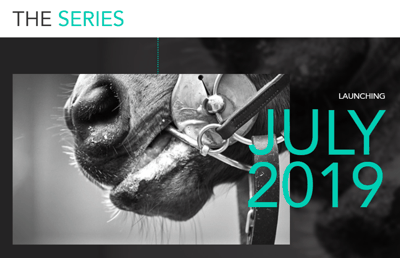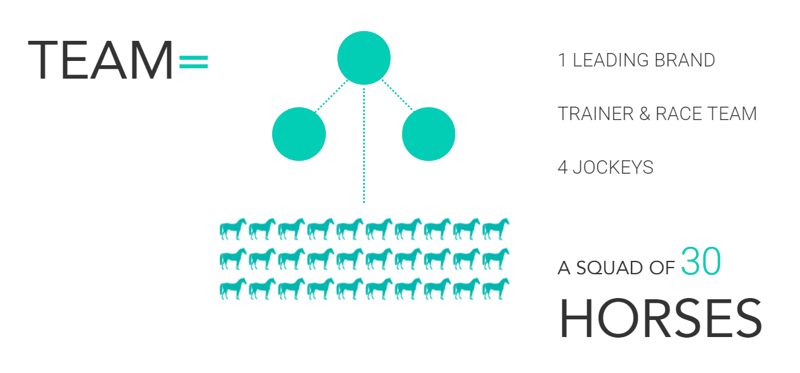 Horse racing is a notoriously individual sport. It’s tricky enough for jockeys to get the horses to do what they want when all they’re doing is racing around the track and jumping over fences, let alone once you start adding in more complicated requirements. For that reason, the notion of calling the proposal put forward by Championship Horse Racing a ‘team competition’ is a little misleading. After all, they’re not exactly going to be doing relay races or playing football.
Horse racing is a notoriously individual sport. It’s tricky enough for jockeys to get the horses to do what they want when all they’re doing is racing around the track and jumping over fences, let alone once you start adding in more complicated requirements. For that reason, the notion of calling the proposal put forward by Championship Horse Racing a ‘team competition’ is a little misleading. After all, they’re not exactly going to be doing relay races or playing football.
Instead the idea is to create a competition more closely resembling Formula One, with twelve teams going head-to-head at various racecourses over a period of eight weeks. The courses will all Grade One, whilst the teams would each be headed up by leading trainers. They would each have a squad that would be made up of four jockeys and thirty horses, quite literally allowing them to pick horses for courses in order to try and win the competition, which would be named ‘The Series’.

An Evolution Of The Sport
Championship Horse Racing believe that this is a chance to revolution one of the oldest sports in the world. The likes of Royal Ascot, the Cheltenham Festival and the Grand National are amongst the most watched sporting events in British culture. Yet when the sponsorship deals for such events are compared to the likes of football or tennis, they’re incomparable. CHR feel that that is because horse racing is seen by many as a complicated sport, ‘inextricably linked to gambling’.
Their hope is that by making the gambling side of the business less important and creating a competition that will appeal to lovers of other sports, they’ll be able to attract more high-profile sponsorship deals to the horse racing industry. They want to make ‘The Series’ gripping and unmissable, helping horse racing to sheds its reputation as being ‘elitist’. The F1-style competition that they’ve come up with may well do that, especially as they intend to bring innovative technology and data to the fore.

Giving People A Team To Follow
One of the hopes of CHR is that they will be able to create more engagement in the sport if they can give sports fans a team to follow. The Chief Operating Officer, Ben Spivack, said, “I want to… [provide] …tribal allegiance through the team based format”. Each time the competition runs, which is planned for Thursday nights, there will be six handicapped races. All of the forty-eight events will have prize money of more than £100,000, aimed at ensuring the best people in the business get involved.
There will be a points system in place for the competition, used to determine the winning team and jockey in much the same way that both drivers and constructors are rewarded in Formula One. It has already caught the interest of members of the horse racing industry, with the leading trainer John Gosden saying, “The Series is the most creative and positive racing sponsorship opportunity I have seen and I hope it will become a tremendous success”.
It’s also received the backing of the Jockey Club. The organisation, which is the largest commercial group in the entirety of British horse racing, said that The Series is ‘something that makes complete sense’ for them to support, given that they’re ‘all about the long-term health of British racing’. The Chief Executive Officer of Championship Horse Racing backed up this view point, suggesting that there was an opportunity for the new format to ‘demystify horse racing’.
The competition will be launched in 2019 and will be restricted to the flat racing season. It is hoped that each of the teams will be owned by ‘major international brands’, giving ‘The Series’ a sense of reliability and prestige from the off. Whether or not it will be a success obviously remains to be seen, but by putting the audience first it is certainly likely to appeal to sports fans from the get-go. Whilst CHR seem determined to suggest that they’re trying to separate it from the current ‘perceived dependency on gambling’, the reality is that the venture’s success is likely to depend on whether or not people feel they can have a flutter on it. After all, even the world’s most popular sport in football sees millions of pounds gambled on it every single day. Just because viewers are also fans in that sport doesn’t mean they don’t also like to have a bet on what they’re watching.


